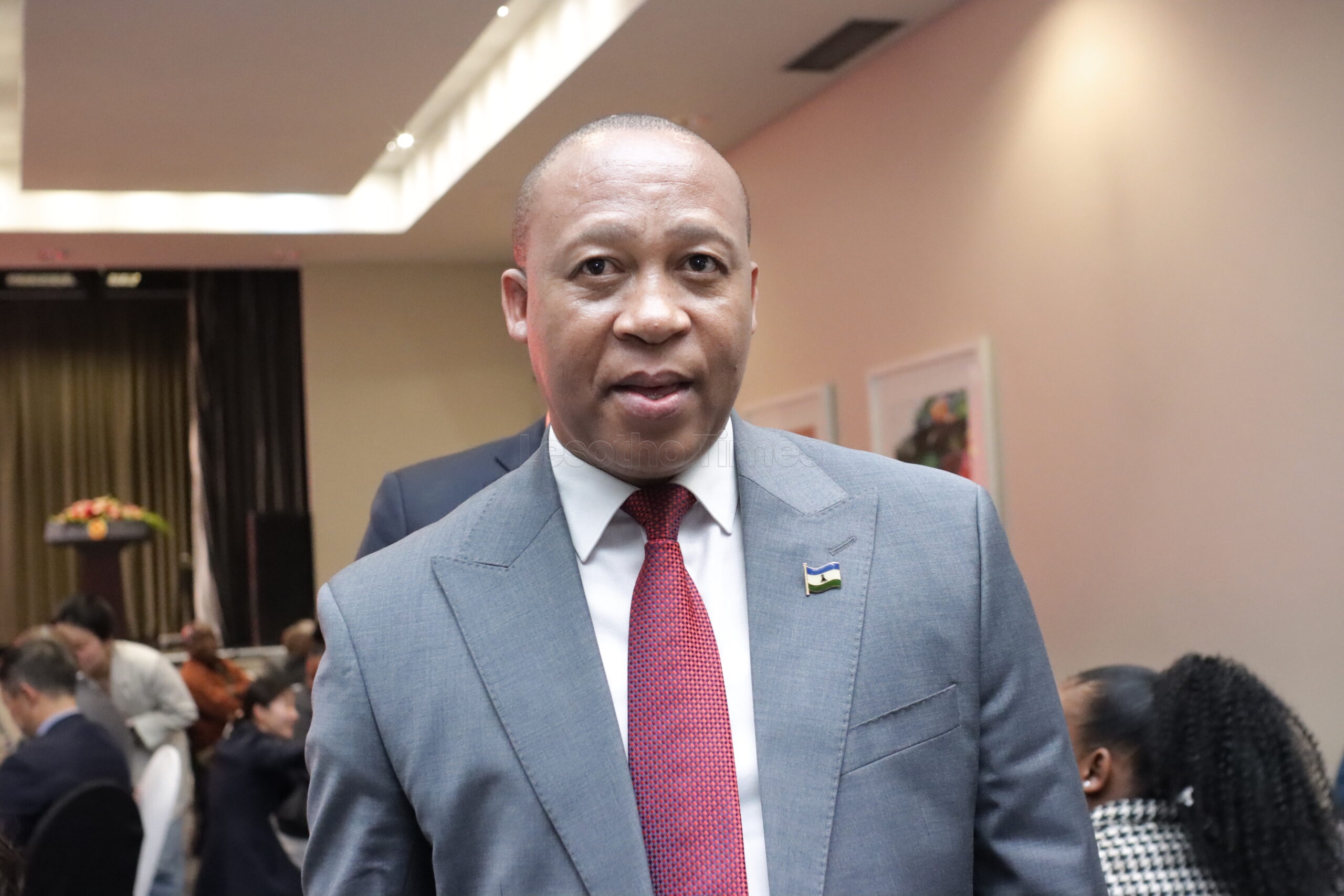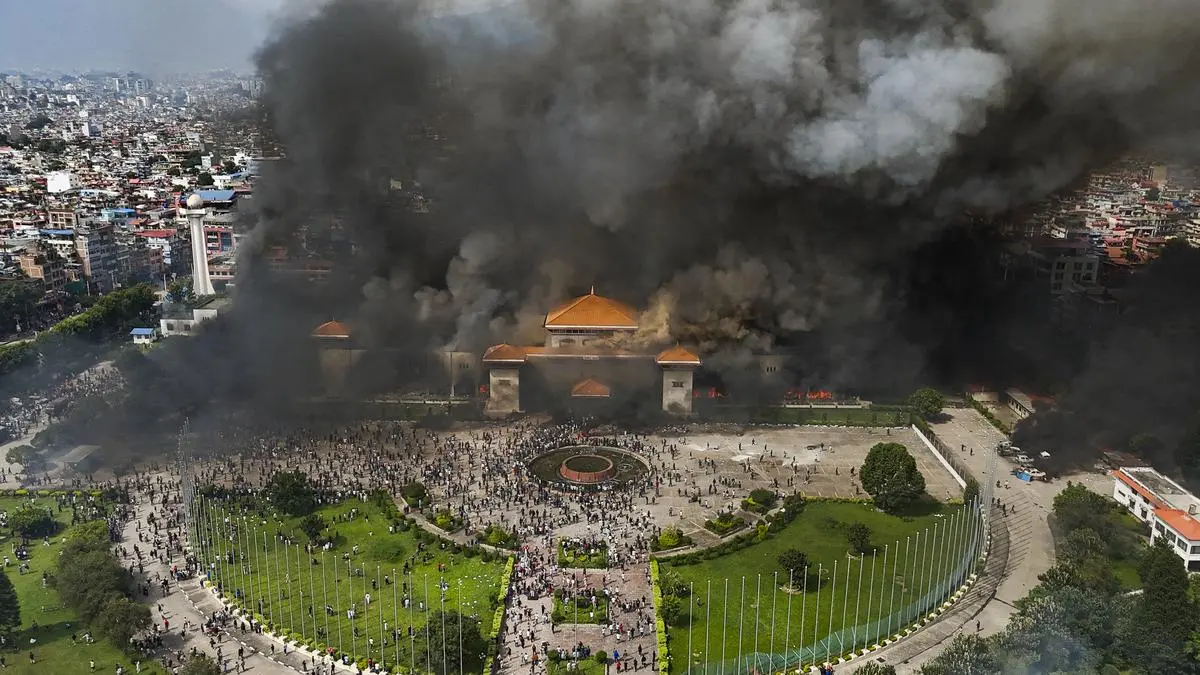By Lesotho Times
Copyright lestimes

Mohloai Mpesi
LEADER of Opposition in Parliament, Mathibeli Mokhothu, has called for all state loans to be approved by Parliament to rein in the massive public debt the country frequently wrestles with.
The Democratic Congress (DC) leader made this call during debate on the Public Debt Management Bill, 2024, which seeks to regulate government borrowing.
The National Assembly is moving to tighten the country’s borrowing to prevent parastatals from running unchecked borrowing.
This would be achieved through stringent amendments to the Public Debt Management Bill, 2024, which Parliament has been discussing this week.
The heated parliamentary debate follows remarks by the Minister of Finance and Development Planning, Retšelisitsoe Matlanyane, during her budget speech this year when she said that public debt increased from M3.1 billion to M3.8 billion between the 2024/2025 and 2025/2026 financial years.
“Loan arrangements will be considered to the extent that the overall debt portfolio remains sustainable and other economic fundamentals will not be unduly distracted by virtue of committing on any credit arrangement for the country,” Dr Matlanyane said in her budget speech.
According to Business Insider Africa, as of August 2025, Lesotho ranks second among the top 10 African countries with the lowest outstanding debts to the International Monetary Fund (IMF), highlighting the country’s success in managing its borrowing.
The top 10 lowest IMF debtors in Africa include: Eswatini – US$9.8 million (just over M160 million), Lesotho – US$11.6 million (about M200 million), Comoros – US$23.1 million, Sao Tome & Principe – US$31.0 million, Djibouti – US$31.8 million, Equatorial Guinea – US$51.5 million, Guinea-Bissau – US$55.3 million, Namibia – US$71.6 million, Cabo Verde – US$76.6 million and Somalia – US$94.5 million.
During parliamentary discussions, Mr Mokhothu proposed an amendment to clause five (5) of the Bill, suggesting that it be expanded to include several government departments.
“. . . the government, its offices, agents and diplomatic missions outside Lesotho, as well as statutory bodies, public entities, local authorities, and any public-private partnership arrangement where the Government of Lesotho has direct or contingent financial obligations”.
The original clause reads: “This Act applies to the Government and to the operations of the offices and agents of the Government outside Lesotho.”
The Bill’s seeks to ensure that the government’s financing needs and payment obligations are met timeously, at the lowest possible cost and at prudent levels of risk, while supporting the development of an efficient domestic financial market and monetary policy objectives.
While motivating his amendment, Mr Mokhothu said: “Although the amendment does not kill the spirit of the original clause, my interest is that state agencies stand out. But I want these government agents to stand out, and it does not change the spirit of the original clause.”
He stressed that the amendment aims to prevent parastatals from running unchecked in their borrowing, as the debt ultimately remains the nation’s responsibility.
“The clause states that all debts are signed by the Minister of Finance and Development Planning. It is to avoid having state-owned enterprises, such as LEC, ending up involving the government in huge debt. That debt, at the end of the day, is a burden of the entire nation, and that should be controlled by the country through Cabinet, the Minister, and this Parliament.
“If we don’t fasten them, they will become runaway horses. These parastatals are government agents already, but I wanted to mention them so that they do not become runaway horses and do as they like because they are state-owned agents.”
He said the debt from parastatals should be approved by the government and Parliament to ensure sustainability.
“The application is that all debts of entities should be known by the Minister and Parliament. We are not stopping them from taking loans, but they should do that within given thresholds, so our debt sustainability is controlled and measured. Debt can cause the collapse of the country’s economy and instability when it is not controlled. Cabinet will be able to see all debts and make decisions on whether to allow them to take a loan.”
During interpretations of the Bill, the leader of HOPE, ’Machabana Lemphane-Letsie, asked Dr Matlanyane whether the Annual Borrowing Plan should also include the reasons for borrowing.
The Annual Borrowing Plan refers to a schedule of anticipated debt contraction over the forthcoming financial year, indicating the size, type, and repayment terms of the anticipated debt.
“I want to understand from the Minister whether the plan can include reasons to explain why we are borrowing, or does it assume that, since it is a plan, it will come with the reasons already?
“Lest we pass it like this and, in future, when we ask why the government is borrowing, the response could be that the law does not dictate providing reasons for the Annual Borrowing Plan. That would make parliamentary oversight difficult, so I am a little bit worried,” Ms Lemphane-Letsie said.
Dr Matlanyane responded: “The purpose can be included in the regulations, which detail the framework of the Annual Borrowing Plan. There is no problem; the grounds for borrowing can be included. I think it is standard. The intention was that when we make the regulations, there will be a framework indicating what the Annual Borrowing Plan entails.”
Ms Lemphane-Letsie insisted it was important to include it in this Bill.
“Writing it here will not do any harm; it would stretch it further in the regulations. It would be one of the things Parliament sees when assessing the plan. The borrowing plan would be tabled in Parliament, so it would be difficult to approve it if it does not explain the purpose.”
Dr Matlanyane explained that including reasons in the schedule accommodates emergencies.
“In principle, the country borrows money for public works, not for recurrent purposes — that is the principle of the Bill — but emergencies may appear anytime. We don’t want to specify all reasons in the Bill because they may not be exhaustive.”
Speaker of the National Assembly, Tlohang Sekhamane, added that mentioning the Annual Borrowing Plan in the Bill would not kill the spirit of the Bill.
“During borrowing, the Minister can explain to Parliament if it is an emergency. We only need to detail the type, purpose, size, and terms in a way that does not betray the spirit of the law; principally, we want to borrow for development, not consumption. On the day we come before Parliament for an emergency, we will justify it as such.”
Dr Matlanyane said, “Public Debt Management is established to manage the country’s debt, achieve objectives, and meet other public debt management goals. It involves managing government debt strategically to raise required funding, achieve risk and cost objectives, and meet any other goals set by government. Public Debt Management should help the government reach its objectives sustainably”.



